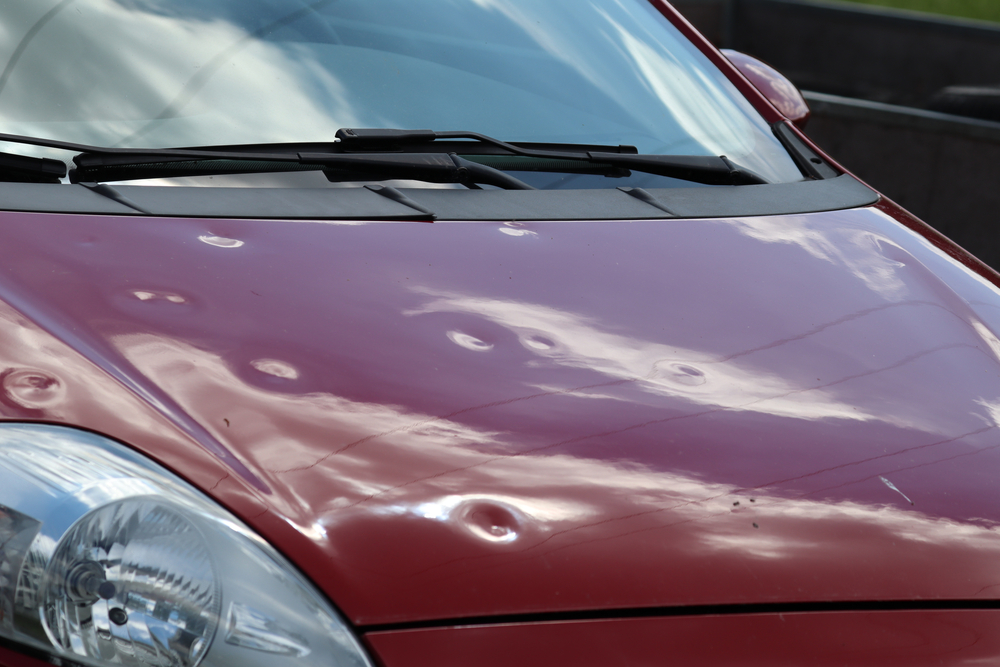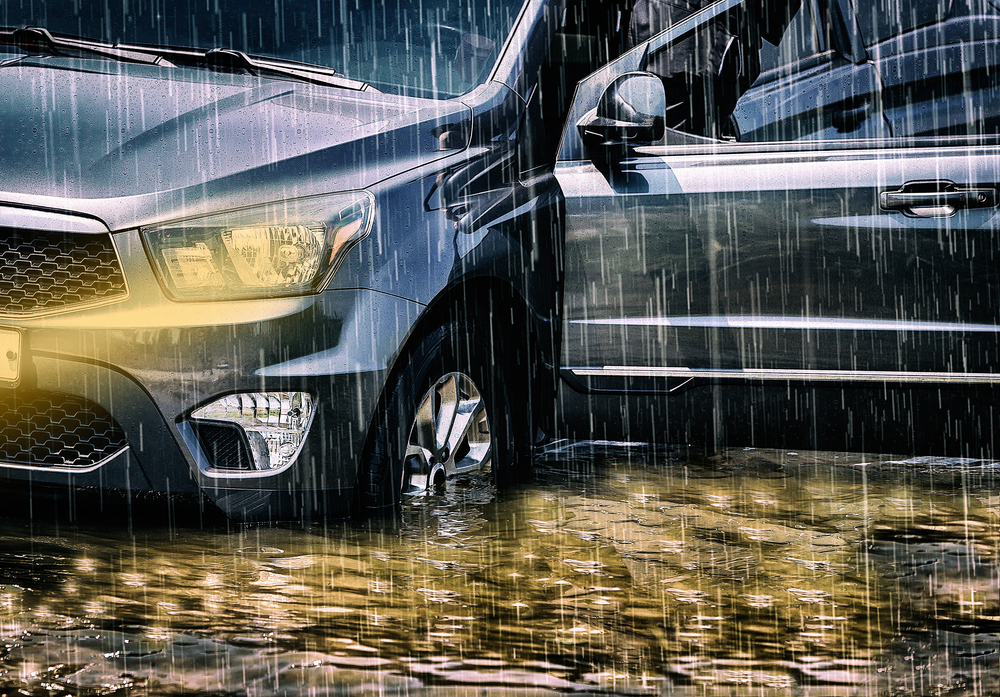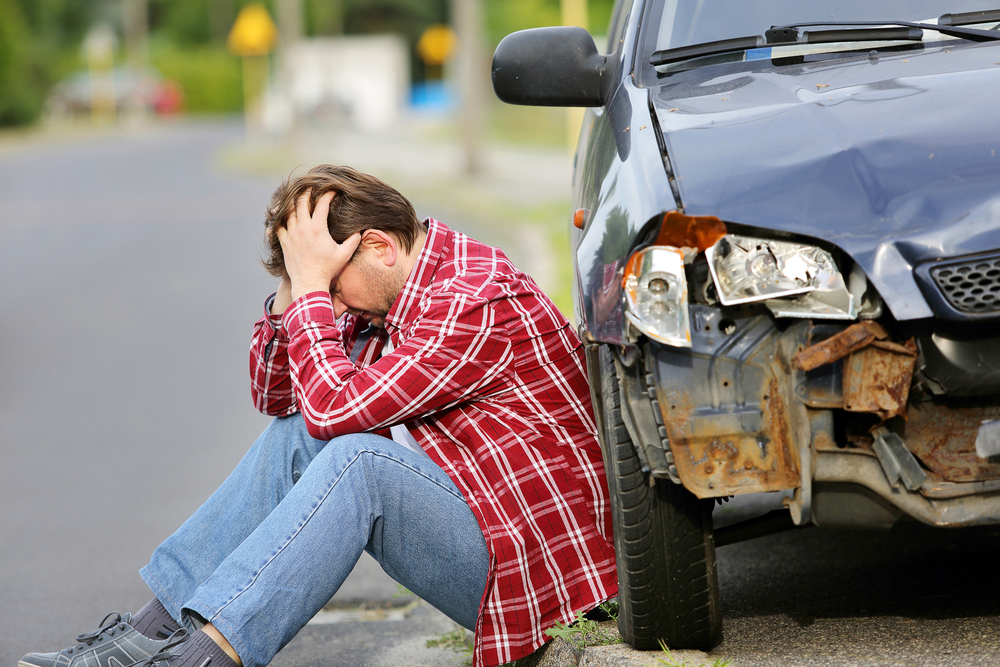What Happens if Someone Hits My Salvage Car?
Salvage cars have been declared a total loss by an insurance company. There are a number of reasons why a car could be totaled or given a ‘salvage’ title: theft, fire, water damage, hail damage, and/or a car accident.
Cars that were repaired and that passed an inspection could receive a ‘rebuilt’ title and be safe for the roads again. In addition, hail vehicles might be totaled but could receive a title that lets them be driven, too. However, the value of a totaled car becomes murky. Car owners might wonder: “what happens if someone hits my salvage car?”
The answer to this question isn’t so simple. Here are two possibilities that could happen when someone hits a salvage car:
- The owner is driving a car that cannot be legally driven, resulting in issues
- The responsible party’s insurance offers some compensation
What Happens if the Owner was Driving a Salvage Vehicle?
If someone damages a car with a salvage title, the owner has already been compensated for the loss. If the car’s title is still ‘salvage,’ then it isn’t safe to drive and can’t be operated on public roads. If the owner was driving it with a salvage title—not rebuilt—there could be issues for the owner. In this situation, compensation might be the least of the owner’s worries.
Would the party who hit the salvage vehicle still be responsible? Legally, hitting a vehicle might still render them responsible. However, their insurance company might balk at repairs or compensation if, again, the owner was not supposed to be driving the vehicle. Plus, salvage title vehicles cannot be insured.
In the situation of a car owner driving a car that has a salvage title (and doesn’t have insurance), a lawyer might be the best person to offer advice.
When the Car Owner Receives Some Compensation
The value of a rebuilt vehicle isn’t always easy to ascertain. Remember, the vehicle has already been totaled and declared a full loss.
A rebuilt vehicle could offer some value, and this means the owner could be entitled to repair costs or some compensation (if the car is now unable to be repaired). How much compensation, though, might depend on the insurance company of the responsible party.
The site CarInsurance.com offers some insight about the value of rebuilt salvage vehicles. The site explains:
“Auto and insurance industry sources report that the decrease in value of a vehicle that has a rebuilt or salvage title is typically between 20% to 40%, depending on the type of vehicle, its age, the amount of damage it had and the local automotive market.”
Can Car Owners Buy Comprehensive Insurance for a Rebuilt Vehicle?
Car owners might wonder if they could purchase comprehensive auto insurance for a vehicle with a rebuilt title. Typically, auto insurers won’t take on a vehicle with a rebuilt title for comprehensive coverage. Again, the vehicle was already totaled.
However, car owners might get liability coverage for these cars. They may need to research their best rates, though. Value Penguin explains that rebuilt vehicles also are deemed riskier because they could have hidden issues; thus, the site explains that insurance companies perceive them as more likely to result in claims.

Is Buying a Rebuilt Car a Good Deal?
While cars with salvage titles can’t be driven, car buyers might come across great deals at dealerships related to cars with rebuilt titles. Some car dealerships get hit by hailstorms, which results in a significant amount of their inventory being declared a total loss or being damaged.
USA Today explains that hail damaged cars have their damage designated on their title. Buyers might feel better when they know that the reason for the ‘total loss’ was simply significant cosmetic damage.
Hail-damaged cars could come with a much lower price tag. This could be a great opportunity for a buyer that wants a high-priced car that isn’t in their budget.
USA Today reports, though, that buyers still need to be cautious when buying these cars. Specifically, the paper reports that buyers should find out if the car can be protected with comprehensive insurance and if a lender will finance a hail-damaged vehicle.
If a car cannot be covered with a comprehensive policy because of the hail damage, it’s possible that a lender won’t provide financing. Comprehensive coverage helps protect a lender’s interest. This coverage protects the car owner, too.
If the owner is responsible for an accident and doesn’t have comprehensive coverage, they will need to cover the costs of repairs to their vehicle. In addition, if the car is completely destroyed, they will still be responsible for the loan.

Should Car Owners Even Repair a Totaled Car?
If a car is in a major accident or severely damaged in a flood or a fire, fixing it could be impossible. In this case, once the car is totaled by the insurance company, the owner will simply need to let the insurance company take possession of it. The car might then be auctioned or completely scrapped.
When a car is damaged by hail, the insurance company might let the owner buy back the car at the salvage value. The price will then be deducted from the settlement. In some states, a buy-back isn’t allowed except in certain circumstances. To better understand options when a car is totaled, car owners can research their state’s laws.
Cars that were declared a loss because of hail might be able to be driven. However, the owner will need to re-title the vehicle and go through all the necessary steps required by their state to ensure the car is legal for road travel.
How to Find a Budget-Friendly Car if a Car Was Totaled
If someone hits a salvaged car that was rebuilt and street legal, the owner might receive some compensation. However, since these cars are worth much less than a car with a clean title, the compensation could be minimal.
In an accident that renders the rebuilt car useless, the car owner might be on the hunt for a new vehicle and have very little money to allocate towards that new purchase.
How can car buyers find a vehicle that fits their budget? The first step is to figure out how much the buyer can feasibly spend on a new vehicle. This requires reviewing the budget; add up all the monthly expenses (including food, insurance and fuel). Then add up the monthly income (use the take-home pay, which is after tax and other deductions).
Is there a budget surplus, or does the budget show that expenses are higher than income? If the latter is the reality, cutting expenses to afford a car might be required. However, if there is a surplus, this could figure into how much an individual could feasibly spend on a car payment.
The general recommendation is that individuals should spend less than 10 percent of their monthly take-home pay on a car payment. Some people could afford to spend a little more, but others might need to spend much less.
If someone hits a car with a rebuilt title and it is now completely destroyed, car owners could use any compensation they received to buy a car outright. This might mean that the car purchase might not be the owner’s dream vehicle.
The goal might simply be to find a vehicle that is safe and gets the individual where they need to go. When buying a car in cash and without financing, search for vehicles under the budget. Why? Buyers will still need to pay sales tax (in applicable states) and fees related to registration/titling. The price of a car isn’t just about the sales price.
When opting for used cars, ask to review the Carfax report. This can help a buyer understand the number of previous owners and any details related to accidents/repairs. Buyers also might insist on an inspection. In fact, Consumer Reports recommends that potential buyers take the vehicle for a professional inspection.
Buyers also can research the value of cars via Kelley Blue Book (KBB). The site can help buyers compare prices at dealerships, but buyers also can enter in a car’s make/model to uncover a resale price. This could help them understand the price they might expect to pay.
During a time of high demand for new and used cars, buyers might contend with high price tags. This doesn’t mean that buyers can’t find a car in their price range, but they might need to make a few concessions. Used cars vary in price based on several factors:
- Make/model
- Mileage
- Age
- Condition
Rock-bottom prices could be attached to older cars, vehicles with very high mileage or maybe even cars that are in not-so-stellar condition. Not every buyer wants a car that’s 20-years-old, but some buyers could be fine with any model that allows them to buy a car for the cash in their pocket.
Safety, though, is important. Buyers should consider the safety features in the car that they wish to purchase. Older cars might lack the advanced safety features found in newer cars.
What Happens if Someone Hits My Salvage Car?
When someone hits a salvage car or even a car with a clean title, the owner might be faced with only a claims check and a worthless car that is now the property of the insurance company. The check from the accident could be the car owner’s budget for a new car. They also could use the claim check to serve as their down payment for a new car.
However, if the car owner happened to be driving a car with a salvage title that wasn’t able to be operated on the road, they may have other issues with which to contend after an accident (even if they weren’t at fault). Don’t drive a car with just a salvage title and understand that driving a car with a rebuilt title means it’s worth much less than a vehicle with a clean title.
Recent Posts
Categories
Luxury Cars
Trucks
Sedans
